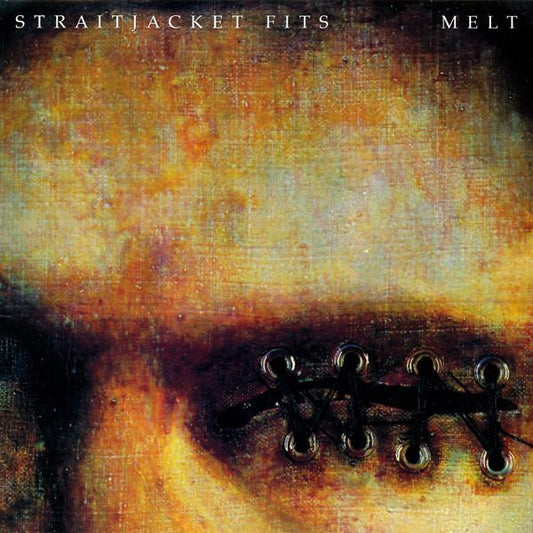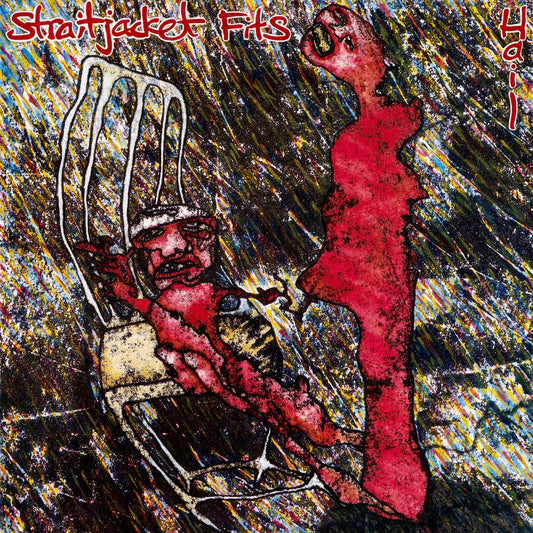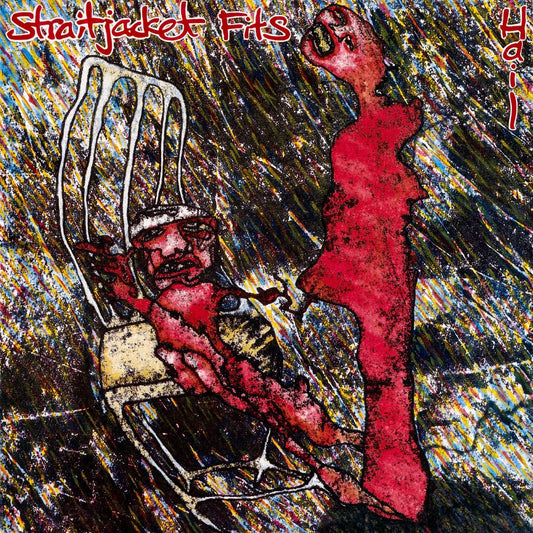They had smouldering good looks, real star power and most importantly, their guitars rang with more than their rightful share of apocalyptic riffs blessed by Satan himself, or the Lord Jehovah, maybe. Who knows, but they were that good.
They nearly conquered the world, but it all ended in tears. Straitjacket Fits left us with three achingly great albums and some of the best songs in NZ rock history, and that should be enough.
If there was a typical “Flying Nun” band in the mid-‘80s, Straitjacket Fits were its antithesis. Short of star power and brooding good looks (unless you counted Graeme Downes’ handsome bookishness or Martin Phillipps’ round-faced cuteness), the label’s good shepherd (haw-haw) must have blanched (or maybe just smiled) at the cool cache ‘the Fits’ instantly brought to the label.
Mind you, hindsight is often just poor memory, and maybe at the beginning they just seemed like another bunch of dour Dunedin youths with black jerseys and pudding bowl haircuts.
In fact, Bored Games (and later The Double Happys) had two potential rock stars in their ranks, Shayne Carter and Wayne Elsey, but that came to a messy, tragic end, and after a suitable period of mourning, we were warned of Carter’s impending greatness by the apocalyptic one-off with Peter Jefferies, ‘Randolph’s Going Home’.
I find ‘She Speeds’ hard to listen to now, so coiled and intense and perfect and instantly gob-smackingly memorable that it’s branded permanently in my psyche; but when it was released in ‘86 it seemed like there had never been a song like it, and there probably isn’t. Blessed with a bridge that rang with the Byrds-like harmonies of former Orange man Andrew Brough, the song’s ultimate genius was in its contrast with the roller coaster “here we go again” momentum of the chorus and its unforgettable Carter guitar lines.
Rock journalism talks too much about success and industry, and we’ve all heard those sob stories about Straitjacket Fits and how they nearly made it overseas, but how it all went horribly wrong. None of that matters now, because we’ve got the music, and their albums are full of coruscating, surging genius. This is guitar-based rock music the way it is supposed to sound; informed by history, meaning every word and every gesture, surging with hormones, genuine and real but unconcerned with that boring word “authenticity”. Straitjacket Fits were all about the imperative to burst through to the sublime, breaking on through to a different place (and Shayne would hate me for saying this, but they remind me of the Doors in that way. I know, I know, Carter is a much less pretentious shaman than Jim Morrison, but…)
Since ‘the Fits’, Shayne has gone on to Dimmer, and this sentiment goes against general opinion, but I think his songs are even better these days; now he really gets inside them, knows how to examine them, work his way back out from the song like a happy munching worm in an apple. And he still writes guitar riffs that come straight from Satan, or Jehovah, or wherever.
Straitjacket Fits, then. A couple of classic albums, 'Hail' and 'Melt', combining Carter’s burning grooves with Brough’s harmonic splendour; one last without Brough ('Blow') that at the time seemed too dark, too monochromatic. Listen to it now, as I did the other day, and it’s stupendous; rich, and less dated than all that grunge stuff that was so hip at the time. But back to 'Hail': what a record, with their utterly cool version of Laughing Len Cohen’s ‘So Long, Marianne’ and, on the CD, their first EP, Life In One Chord, added for good measure. But Melt is generally considered their best work, despite somewhat dated production, and contains key songs like ‘Bad Note For A Heart’ and Brough’s ‘Down In Splendour’.
At its core, Straitjacket Fits were Shayne Carter with able accomplices (did I mention their powerhouse rhythm section of drummer John Collie and bassist David Wood?), but in the end, it was all about Carter’s brooding intent, and those malevolent riffs that have a sense of otherness that few “normal” rock groups could ever muster. They rock(ed).


 Sale
Sale


